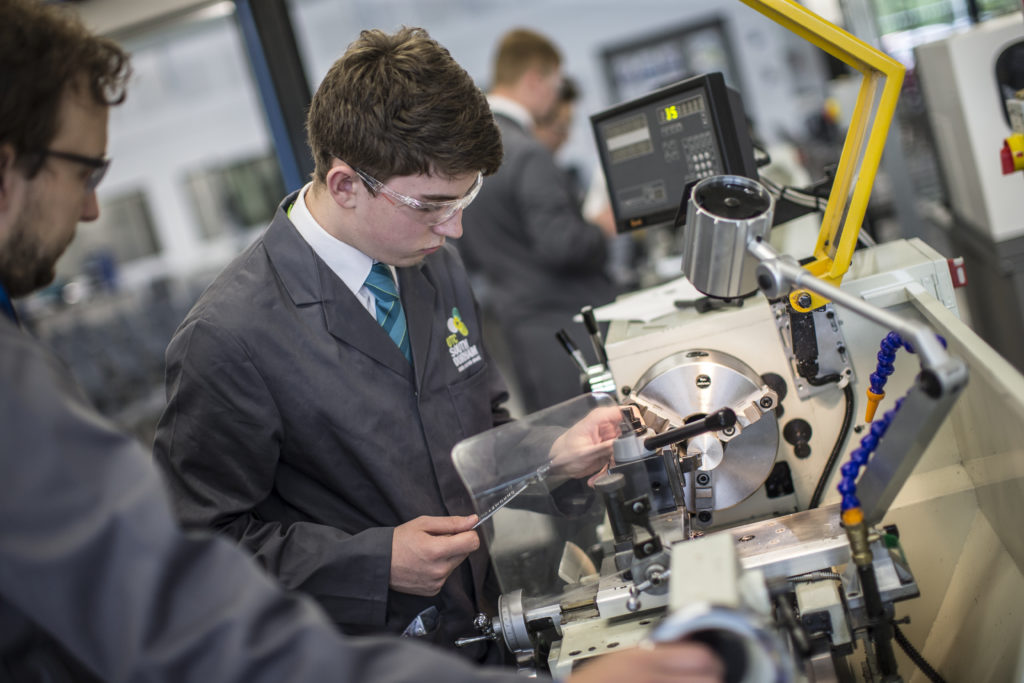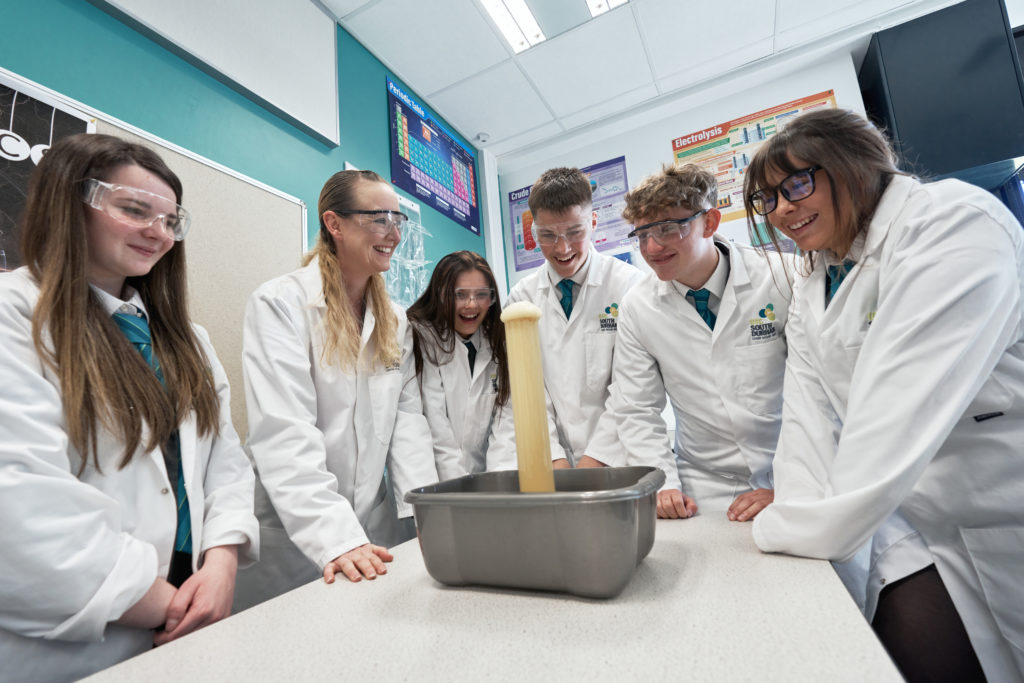Tom Dower (1990) is Principal of UTC South Durham, a technical college for 14–19 year olds in the North East of England.
‘It’s because I’m your colleague and we are working together on your career.’ I answered the 13-year-old girl sitting opposite me on Wednesday evening. ‘That makes sense,’ she replied, ‘I like that’.
Chloe has made the decision to join us to study her GCSEs from September. Along with 145 of her peers from across the North East she has signed up for an additional six hours per week of taught education compared to her current school. Living 25 miles away from the college, she is also adding an extra two hours a day of travel. It is not the easy option.
Her question was, ‘Why do I call you Tom, not Mr Dower?’ First-name terms is one of the ways we convey that the University Technical College (UTC) will offer Chloe a different educational experience.
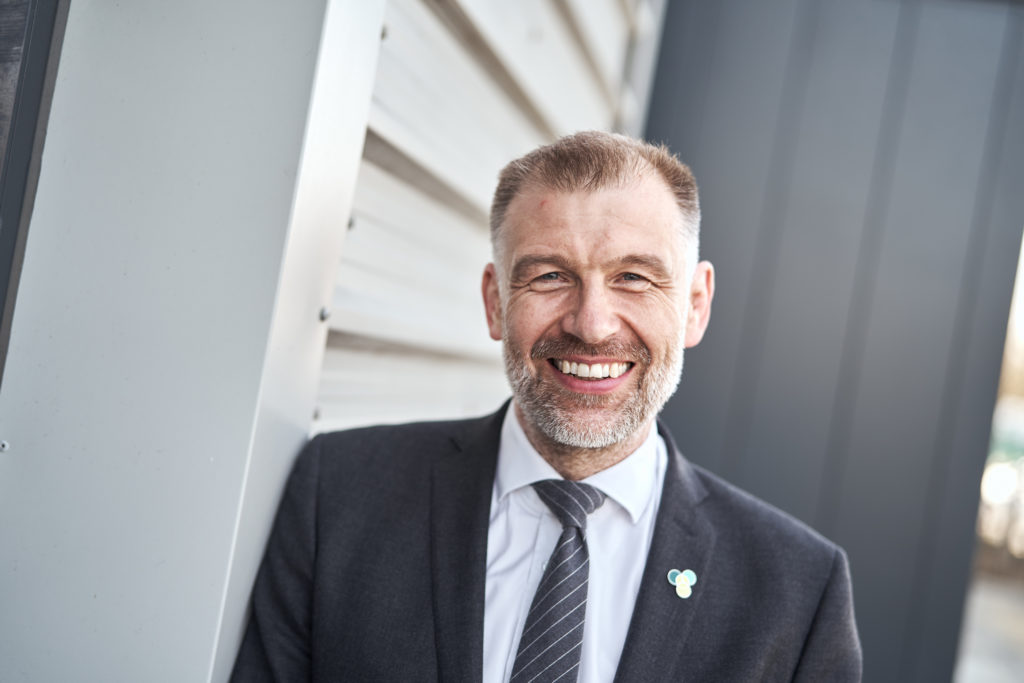
There are 48 UTCs across the country. UTCs are state schools for 14–19 year olds, led by universities and employers with a focus on preparing young people for their future careers. Students study GCSEs or A Levels alongside technical qualifications and workplace experiences. Lord Baker of Dorking, Secretary of State for Education while I was studying for my A Levels, founded the UTC movement and remains the dynamic patron of the network-coordinating Baker Dearing Trust. Johnian Simon Connell (1989) is now their CEO. We all share a vision to change the way society thinks about education.
From a distance it probably looks like I have jumped around between different careers: mechanical engineer, project manager, management consultant, teacher, school leader. I reflect on my time at St John’s and the decisions I made through the last 30 years – not always financially advantageous – and feel like those five different career phases were a very natural evolution. Each of those phases, from studying Engineering and Computer Science at Cambridge to the joys of working with teenagers and the challenges of working in our education system, helped to shape my attitude to education.
all schools can adopt an educational ethos that honours students as young professionals preparing for their career next steps
I am very conscious of the privilege of an Oxbridge education, entry to which comes about through a combination of hard work and plenty of prior fortune. At different stages I was painfully aware that many individuals, families and communities, and indeed some industries, lacked confidence in education as a route to progress.
My combination of engineering, business consultancy and educational leadership brought me to the opportunity in 2015 to work with the University of Sunderland and local employers to establish a new school on an industrial estate, and it is those career experiences that motivate me to create a very different educational ethos.
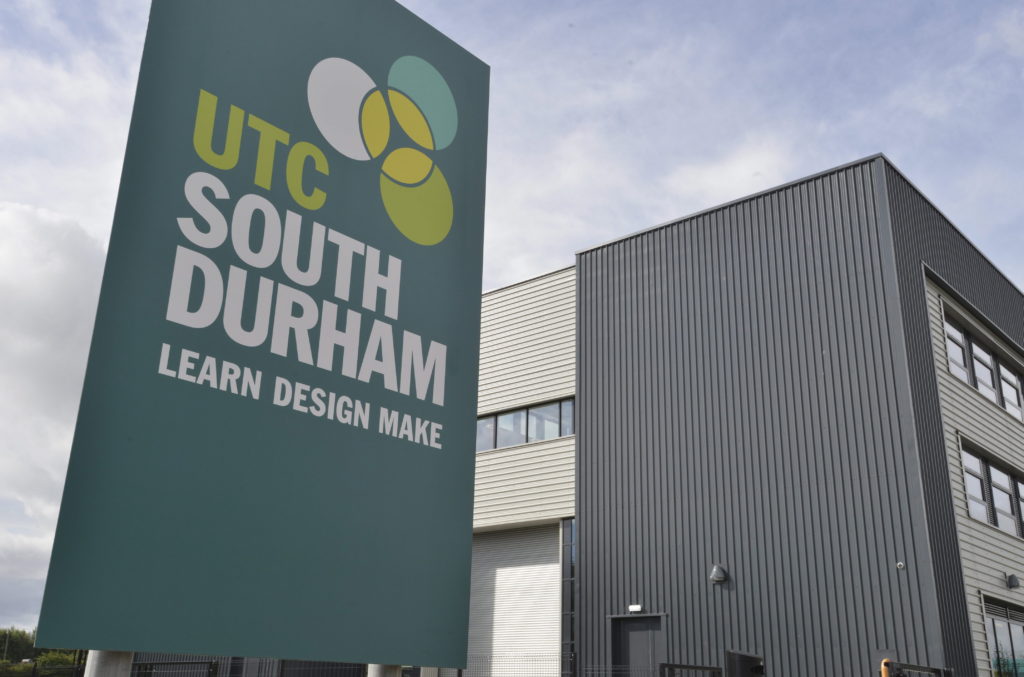
UTC South Durham 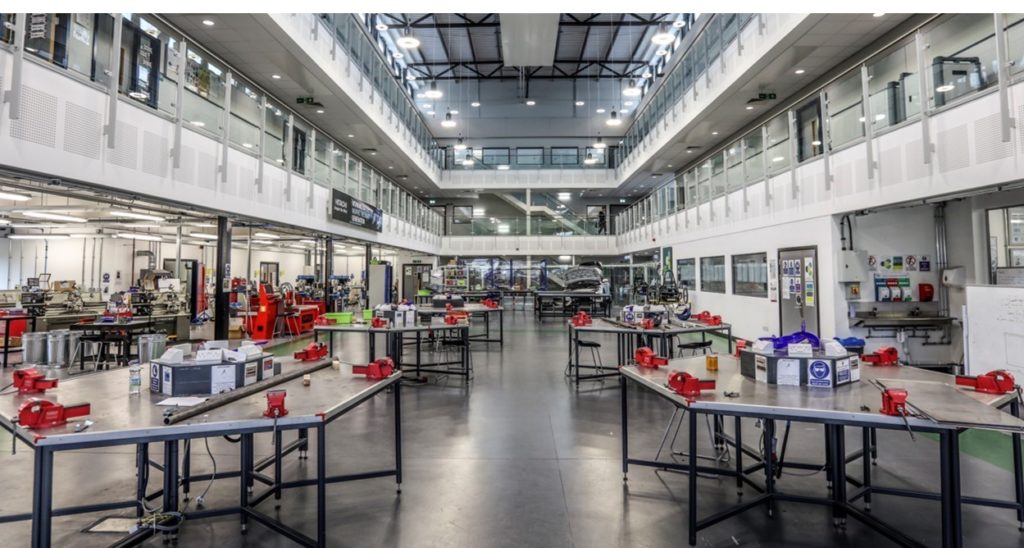
The Engineering Hall
When I’m asked, predictably, about the impact of COVID-19 on our students, my answer frequently surprises people. I’m not concerned about lost academic learning over the last 18 months because young people will learn what they need to over time if they have the right support from us educationalists. Instead, I see a generation of students who, after such disruption, want to be in school. Many students in this cohort value their education – as demonstrated by Chloe’s readiness to take on the extra challenge of getting up earlier each morning. However, I am concerned about the lost opportunity for students to get out into the world, meet other people, explore a range of professional possibilities and build confidence in both their skills and career choices. It is this that we must focus on in the coming years.

The pandemic has given us a superb opportunity to stop and rethink the purpose of education. The relentless focus on academic exam results has resulted in a school system that misses the point; exams are not the best way of assessing the breadth of skills needed in society, and most young people emerge from their school experience exhausted and unprepared for their next steps. Surely the core function of education is to ensure that students are ready for their career and for life.
At the UTC this means that we spread our time across three key educational elements. Firstly, students build academic and technical understanding, which leads to a range of recognised qualifications in subjects they have carefully selected. Secondly, they build employability skills through a project-based learning approach and a wide range of activities, and this gives them confidence to be successful in interviews and the workplace. Finally, we facilitate a range of career and professional experiences, which lead to highly informed decisions about their next steps.
In summary, I’m in the business of helping young people work out a career path for themselves and build the skills they need to be successful. That means treating our students as the young professionals they are. And they respond brilliantly: attendance and attitude to learning improves; course choices and opportunity for skills and experiences are taken seriously; and confidence increases. The results are superb: all students who have wanted to go to university since we opened have done so (all to study STEM subjects and all to their first choice), while two-thirds have progressed to paid apprenticeships, increasingly at degree level. Employers turn to us first when they are hiring, and young people hear good things about us.
Not every school can have the range of specialist technical equipment that you will see at UTCs across the country, but all schools can adopt an educational ethos that honours students as young professionals preparing for their career next steps. As a Johnian I have benefitted from a tremendous academic and social educational experience that prepared me personally and professionally for many future roles. As an educational leader, it is truly joyful to watch young people positively engage with an equally valuable technical and professional education before heading off for the next stages of their varied careers.
You can contact Tom on Tom.Dower@utcsouthdurham.org



